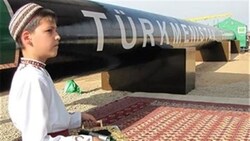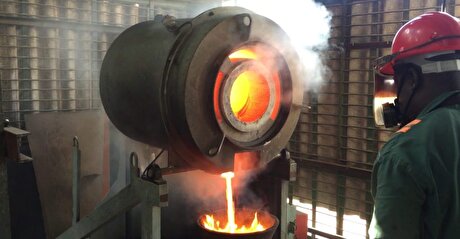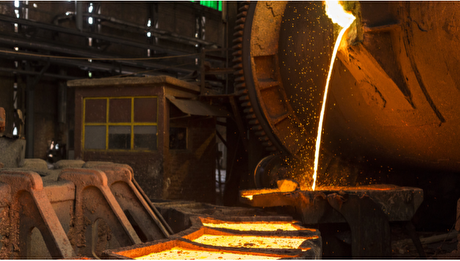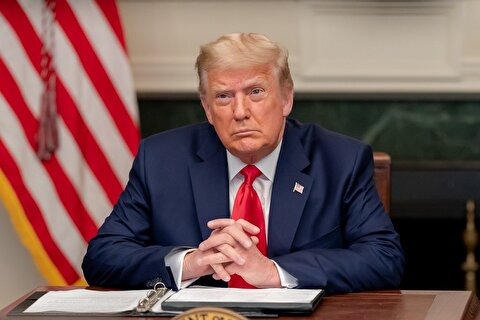
Iran, Turkmenistan, Azerbaijan finalize natural gas swap deal

Iran, Turkmenistan and Azerbaijan have concluded a natural gas swap agreement for up to 2 billion cubic meters per year, which will take effect on Dec. 22.
According to Oil Minister Javad Owji, the contract was signed on the sidelines of the Economic Cooperation Organization summit meeting in Dushanbe, Tajikistan, on Sunday, the Oil Ministry’s news portal Shana reported.
“Under the swap deal, the National Iranian Oil Company will receive gas from Turkmenistan and deliver an equivalent amount to Azerbaijan at the Astara border,” he said.
“Turkmenistan will sell between 5 and 6 million cubic meters of gas per day to Azerbaijan under the trilateral agreement signed in Turkmenistan.”
Turkmenistan has been exploring options on gas swap deals with Iran to export its fuel to markets further afield. Because of economic challenges, Turkmenistan has been seeking to find more buyers for its natural gas riches other than China.
However, since January 2017, Ashgabat has been embroiled in a row with Iran over allegedly unpaid gas bills.
Turkmenistan used to send nearly 6 million cubic meters of gas to Azerbaijan through Iran up until 2017 when it was brought to a temporary halt due to a row with Iran over unpaid gas bills.
The two nations managed to settle the row out of court, as officials in Tehran signaled willingness to put aside differences with the neighboring state.
Owji said Iran was moving to resolve a lingering gas debt dispute with Turkmenistan, which said in late 2017 that it was owed $1.8 billion in payments for gas delivered to Tehran.
"We will soon pay the first instalment to clear the gas debt that we owe to the Turkmen side," he said, without disclosing the amount.
Iran has major natural gas fields in the south, but has imported gas from Turkmenistan since 1997 for distribution in northern provinces, especially during the winter.
Oil and gas swap can be an important source of revenue, as the northern neighbors with abundant hydrocarbon resources need access to the sea in the south.
Pointing to large-scale access to equipment and pipelines in the country, the Iranian Oil Ministry has made it clear that the government is keen on resuming swap operations with northern neighbors to make up for the deficit. In 2010, former oil minister, Masoud Mirkazemi, said Iran had to stop buying crude under the name of swap deals that he described as “national treason”.
According to the ministry’s website, Iran is willing to start swapping oil and gas from Caspian Sea littoral states, provided Russia, Azerbaijan, Kazakhstan, Turkmenistan and Uzbekistan equally take measures and cooperate with Iran in this regard.
Source: ICCIMA


Alba Discloses its Financial Results for the Second Quarter and H1 of 2025

US slaps tariffs on 1-kg, 100-oz gold bars: Financial Times

Copper price slips as unwinding of tariff trade boosts LME stockpiles

Codelco seeks restart at Chilean copper mine after collapse

Uzbek gold miner said to eye $20 billion value in dual listing

NextSource soars on Mitsubishi Chemical offtake deal

Hudbay snags $600M investment for Arizona copper project

BHP, Vale offer $1.4 billion settlement in UK lawsuit over Brazil dam disaster, FT reports

Australia weighs price floor for critical minerals, boosting rare earth miners

Zimbabwe labs overwhelmed as gold rally spurs exploration, miner says

Cochilco maintains copper price forecast for 2025 and 2026

Adani’s new copper smelter in India applies to become LME-listed brand

HSBC sees silver benefiting from gold strength, lifts forecast

Mosaic to sell Brazil potash mine in $27M deal amid tariff and demand pressures

Samarco gets court approval to exit bankruptcy proceedings

Hudbay snags $600M investment for Arizona copper project

Discovery Silver hits new high on first quarterly results as producer

Trump says gold imports won’t be tariffed in reprieve for market

AI data centers to worsen copper shortage – BNEF

Cochilco maintains copper price forecast for 2025 and 2026

Adani’s new copper smelter in India applies to become LME-listed brand

HSBC sees silver benefiting from gold strength, lifts forecast

Mosaic to sell Brazil potash mine in $27M deal amid tariff and demand pressures

Samarco gets court approval to exit bankruptcy proceedings

Hudbay snags $600M investment for Arizona copper project

Discovery Silver hits new high on first quarterly results as producer

Trump says gold imports won’t be tariffed in reprieve for market

AI data centers to worsen copper shortage – BNEF














